In All Of These Things, Where Does Cameroon Stand? By Garba Shehu
 The President, Dr. Goodluck Jonathan’s Meetings to stem the growing tide of insurgency with Idris Derby, Chad’s President, should give Nigerians something to cheer about. It is important that a country that chose an isolanist policy is seeing the need to open up to its neighbors on the important issue of fighting terror. Without their help, there is no way the insurgency can be cornered and smashed. My question and that on the lips of many is where does Cameroon stand in war along our common borders? Is Cameroon as committed as they should be or they are just interested in a game of one-upmanship?
The President, Dr. Goodluck Jonathan’s Meetings to stem the growing tide of insurgency with Idris Derby, Chad’s President, should give Nigerians something to cheer about. It is important that a country that chose an isolanist policy is seeing the need to open up to its neighbors on the important issue of fighting terror. Without their help, there is no way the insurgency can be cornered and smashed. My question and that on the lips of many is where does Cameroon stand in war along our common borders? Is Cameroon as committed as they should be or they are just interested in a game of one-upmanship?
Let me concede that this and the other countries of the Lake Chad basin have sufficient reasons to not be happy with their neighbor, Nigeria. This country under the present government has become something of a 1,000Kg Panda, throwing the entire neighborhood into a state of nervous excitement and agitation. We failed to nip the Boko Haram in the bud. Now it has grown into a phenomenon threatening, not only the territorial integrity of the country but the peace of our neighbors. At the rate they are growing, Boko Haram can use their newly declared Caliphate as a territory to launch attacks against Mr. Obama and David Cameron. We suddenly have become a nuisance to ourselves, the neighbors and the international community.
Problems between us and our neighbors, especially Cameroon, are often forced by this country’s arrogance. Our officials always behave like they are running puppet regimes in Nigeria’s interest in the neighboring countries. When the
Boko Haram violence first hit the sky, we behaved as if it was the neighbors who were feeding it and without putting much thought to it, shut our borders with Chad, Niger and Cameroon. This is why the meeting with Derby is important. The border closure has been hurting the booming informal trade between us and these countries. The informal trade routes are like blood supply veins in the body. As a consequence of the continuing closure, prices of goods on both sides of the border have spiraled beyond the reach of ordinary people. For example, the food additive, Maggi Cube sold for two Naira, eighty kobo at Wuse, Abuja market sell for fifteen Naira (N15) at the border crossing. A senior diplomat revealed at the early stage of this conflict that our government never showed that it was important to speak to the countries of the Lake Chad Commission on the need for joint efforts to tackle the then emerging threat. Without gainsaying it, every leader in the neighborhood felt hurt by apparent snub.
Nigerians have a wishful thinking that Cameroon in particular is our country’s ally without realizing that they see themselves first as a French outpost before anything, and that they are often forced by circumstances to see things in Nigeria’s way. To be fair, though, to Cameroon, we all know that there is a shared feeling of envy and deep hatred against Nigeria by most countries on the continent. They lurk in dark corners, waiting for the day opportunity shows up to slight us. It is a psychological thing which, in the case of Ghana and Cameroon – and the new-comer South Africa – they used soccer to assert their dominance over us. These past few years when Nigeria re-discovered its football talent and prowess, we are no longer being treated as anybody’s doormat.
Boko Haram has however, changed that equation. In the war against the insurgents, Nigeria’s military appears all but exhausted. Americans are warning that the prestige and integrity of the armed forces is being eroded and the British, in a report by their semi-official think-tank, the Chatham House starkly projected that the sitting administration lacked the structural capacity to end the Boko Haram threat. Parents of the kidnapped Chibok school girls said earlier in the week, on Monday on the BBC that events in the North-East show that all hope is lost and that the search for their girls is not on the radar of the army, which is now barely managing to cling on to their foothold in the area.
In international relations, any country that appears to be going through a turbulence – economic, security or democratic is bound to be taken advantage of and I think this is what Cameroon is attempting to do.
From the way things are going, Paul Biya looks as if he has played into the hands of hard-line elements in Cameroonian establishment who are trying to ratchet up tension between us and them.
Agreed that no country, Cameroon inclusive, must remain silent when there is a border incursion of the type they have been experiencing from the Nigerian side by both
Boko Haram and the army. I don’t think it speaks to good faith that Cameroon should disarm the 500 Nigerian troops who for “tactical reason” strayed into their country. To turn the screwdriver a few notches, Cameroon announced a complete border closure following the initial report of Ebola fever appearance in Lagos. Local and international radios have been kept abuzz with reports that 27 armed (and highly spirited) Cameroonian troops “saved” the 500 Nigerian soldiers from
Boko Haram. Nigeria is being projected as “hostile” and its fighting army as “spineless.”
These do not bode well for good relations.
I don’t know if President Biya has sincere desire for peace with Nigeria but if it is true that he has, there ought to be a demonstration of this through a toning down of the anti-Nigerian rhetoric among their public officials.
To de-escalate the rising tension and allow our forces and the policy-makers remain focused on the issue at hand, the Government of Nigeria should call for an all-inclusive dialogue among the members of the Lake Chad Commission. More than at any time, we need better relations with all our neighbors. The meeting with Derby makes for a good start. But the old fox in Yaoundé should be the main target of our outreach.
[su_heading size=”11″ align=”left” margin=”10″]Read More Articles From This Author: Garba Shehu
[/su_heading]
[myad]


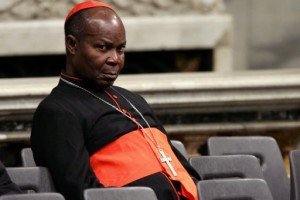
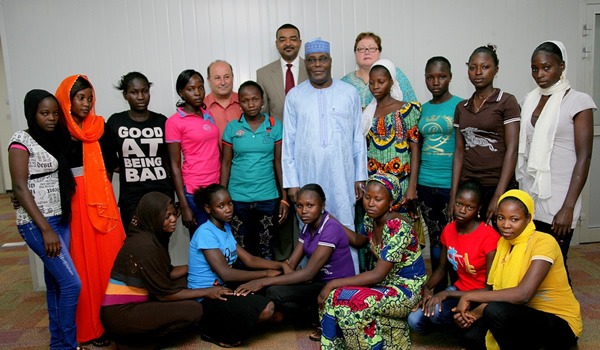
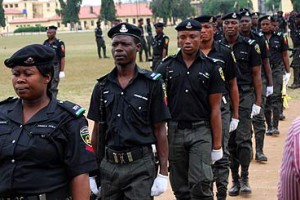 Acting Nigerian Inspector General of Police (IGP), Suleiman Abba has confirmed that about 20 policemen out of many of them that were declared missing in Gwoza, Borno state after a battle with members of Boko Haram are yet to be found almost a month after.
Acting Nigerian Inspector General of Police (IGP), Suleiman Abba has confirmed that about 20 policemen out of many of them that were declared missing in Gwoza, Borno state after a battle with members of Boko Haram are yet to be found almost a month after. President Goodluck Jonathan has made a call to his colleagues African leaders to be part of the digital revolution that is taking place all around the world.
President Goodluck Jonathan has made a call to his colleagues African leaders to be part of the digital revolution that is taking place all around the world.
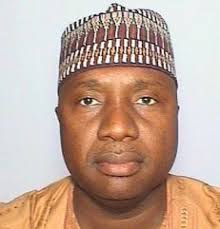
 With the look of things across the country, it does seem that Nigeria’s light fingered ruling elite have found their collective answer and solution to the ‘Poor question’ that is to the question of what to do with the poor, as a way of dealing with poverty.
With the look of things across the country, it does seem that Nigeria’s light fingered ruling elite have found their collective answer and solution to the ‘Poor question’ that is to the question of what to do with the poor, as a way of dealing with poverty.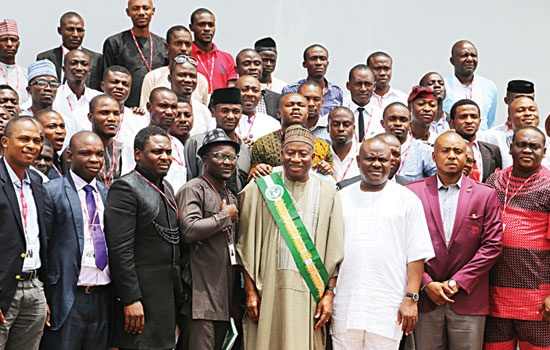

The Igbo Naked Dance For Jonathan, By Onyiorah Chiduluemije Paschal
It really boggles one’s mind the degree to which Ndigbo appear to be excessively reveling in complacency over President Goodluck Jonathan’s so-called favourable disposition to Igbo interest as relates to his 2015 Presidential ambition. As it were, it is though understandable that this Igbo complacency about President Jonathan’s administration is drawn from some empirical facts. For one, analysts believe that until the ascendancy of President Jonathan, no one of the past administrations in Nigeria – be it the military or its
Onyiorah Chiduluemije Paschal writes from Abuja via duluemije4justice@yahoo.com – 08037738607.
[myad]